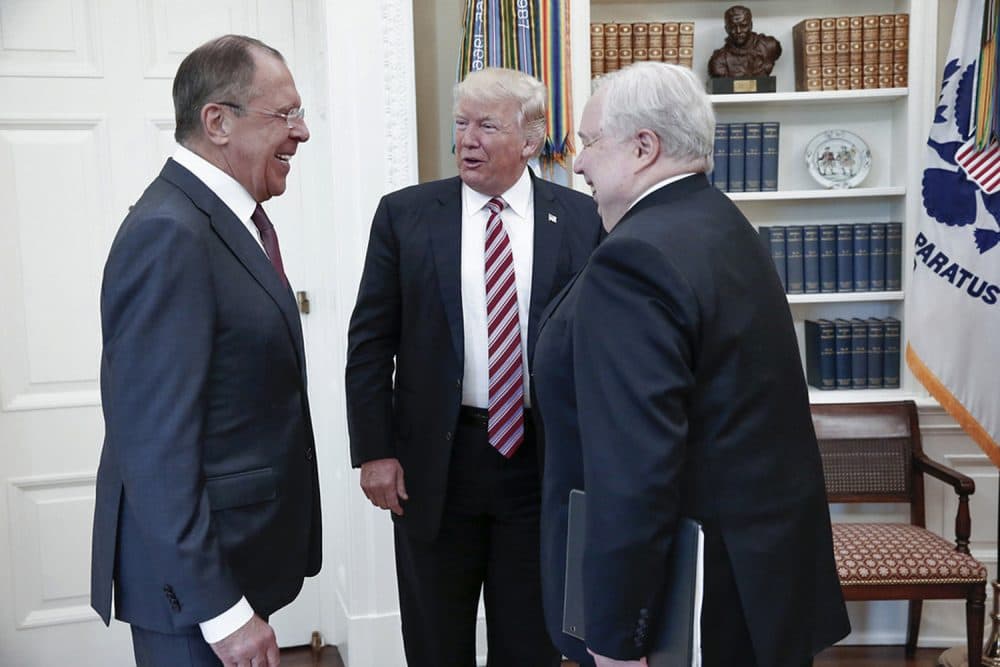Advertisement
President Trump's Classified Disclosure To Russian Officials
Resume
President Donald Trump shares highly classified intelligence with the Russian Foreign Minister and Ambassador to the United States, according to reports in the Washington Post. We'll dig in.
Guest
Greg Jaffe, one of the Washington Post's reporters who broke this story on Monday, joined us from Washington to discuss his reporting.
Highlights
Greg Jaffe's breakthrough Washington Post story published Monday evening brought a sharp focus back to Trump's relations with Russia. Joining us on air, Jaffe, who shared his byline with his fellow Post reporter Greg Miller, explained the details of his story. He reported that Trump shared classified intelligence with Russian officials during a recent meeting at the White House:
"They were discussing a plot to put laptops on airplanes that would cause the airplanes to blow up, [it was] a potential terrorist threat coming out of Syria," Jaffe said. "I think that the president overstepped in terms of the amount of intelligence he shared about that plot – the varying degrees of damage that it could do – and he overstepped in terms of talking about the precise location of where that plot was being hatched inside the country of Syria, that could potentially allow the Russians to sort of reverse-engineer and figure out where the intelligence was coming from."
Trump's National Security Adviser H.R. McMaster responded quickly to the story Monday night, calling it "false" and denying that Trump shared intelligence sources or methods with the Russian officials. But Jaffe said that denial missed the mark:
"The story doesn't say that intelligence sources and methods were discussed," Jaffe said. "What he discussed that he arguably shouldn't have was information collected from this intelligence stream provided to the United States by a partner, that would potentially allow a sophisticated intelligence service, like the Russians, to work backwards to figure out where that information was coming from."
Though Jaffe and Miller uncovered specific details of Trump's disclosure, Jaffe said they intentionally left details out of the story:
"We fuzzed up the exact name of the partner, and were asked to, to protect that relationship, so that's why we didn't get more specific in the story," he said. "This particular partner felt like they had been burned by the U.S. before and were particularly sensitive to this particular stream of intelligence being shared."
Trump responded to Jaffe's story on Twitter today, admitting he shared "facts" with the Russians, which he had the 'absolutely right to do:'
"He's pretty vague in the tweets about what that information was, and that he did it ... for 'humanitarian' purposes,'" Jaffe said. "He wanted the Russians to understand the seriousness and the nature of the threat in the hope that it would prod them to work more closely with United States and in a more constructive fashion, both to eliminate the Islamic State and then to resolve the broader crisis in Syria."
Later Tuesday afternoon, a New York Times report --confirmed by reporters at NBC News — identified Israel as the alleged source of the information the President shared with the Russian officials.
This segment aired on May 16, 2017.